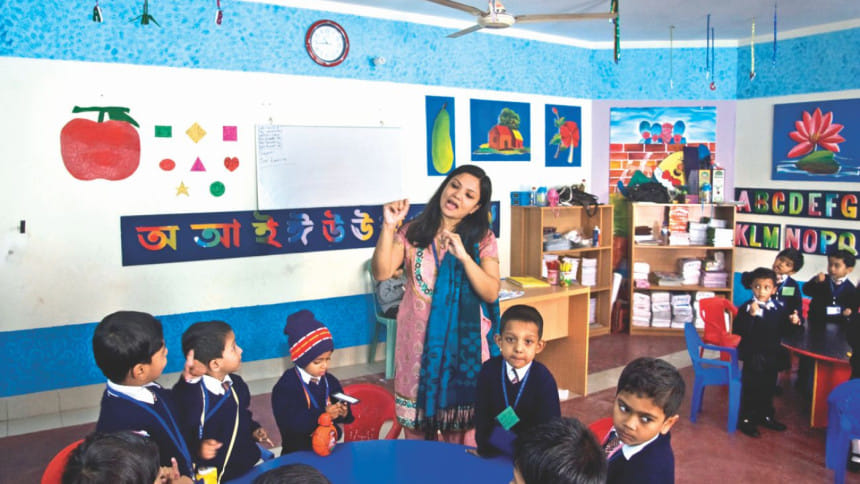A STEP IN THE RIGHT DIRECTION

In order for us to consider something to be true beyond reasonable doubt, we put it through a series of tests. This has also been the method we resort to when we need to prove the credibility of one's knowledge. Tests and examinations have been the method of assessing the degree of a person's learning for centuries and a major part of today's education system. However, the question that must be asked is if they are truly capable of reflecting the level of understanding students may have and the knowledge they may have managed to retain.
Recently, it was announced that the education ministry has decided to scrap all examinations from grades 1 to 3. The news was delivered by the Ministry of Primary and Mass Education recently which instructed that no exams were to be held for students in these grades, and that promotion to the next grade would depend on an evaluation process conducted by the teachers from this year onwards. The announcement left many concerned citizens feeling unsettled as they were not sure about the repercussions of such a decision.
Examinations have always been a vital part of our country's education system, and the grades received, the only reflection of a student's abilities. This led to the learning system that concentrated heavily on a student's exam taking capabilities rather than their learning capabilities, fuelling an often unhealthy competitive environment in our schools. Pressurising students from a very young age to memorise and cram ideas within the bounds of a set syllabus takes away the opportunity for the students to value proper understanding. While such a curriculum could allow more discrepancies to take place in terms of observation and evaluation, the benefits are far more substantial.
The initial years of school and what students experience in these initial years, set the tone to their learning habits for the rest of their lives. Thus, the existing testing system rears a culture of cramming and memorising details temporarily in a short period of time, only to forget all about it within the next few days. Eliminating examinations during the first few years of primary education leaves room for students to actually value understanding and knowledge instead of focusing on the grades they receive, introducing the idea of a more holistic approach to learning.

The education one receives in school is ideally meant to enhance their talents and highlight the ones they should pursue later in life. Sadly, our education system forces children to abide by a fixed template, leaving no room for them to focus on other skills they may have. So, a system that is actually supposed to bring out the best in our students, unfortunately buries their skills so deep that most people forgo what may just be their true talent, and never return to them. Hence, a step such as the one taken, may allow students to focus just as much on other activities, as they would with the standard disciplines they are to learn, at least in the primary years of schooling.
Many private schools in Dhaka have been practising this method for many years. Salma Begum*, a private tutor in Dhaka has an eight year experience teaching children following both curriculum, "The children who don't have to worry about exams, usually find the time and opportunity to involve themselves in learning new things outside their schools, such as a new language or a musical instrument. Not only does this set them apart from other students in terms of their capabilities, they also usually focus more on understanding the concepts rather than memorising them."
Like any other changes made to a fixed system, this approach will also need time to be made seamless. With time however, changing the existing format in ways could actually help improve our education system and benefit the students by making them better learners. A future of a nation lies in the hands of our students, and making the effort to ensure quality education for them could give us the possibility of a more promising future.
*Name has been changed for privacy

 For all latest news, follow The Daily Star's Google News channel.
For all latest news, follow The Daily Star's Google News channel. 



Comments